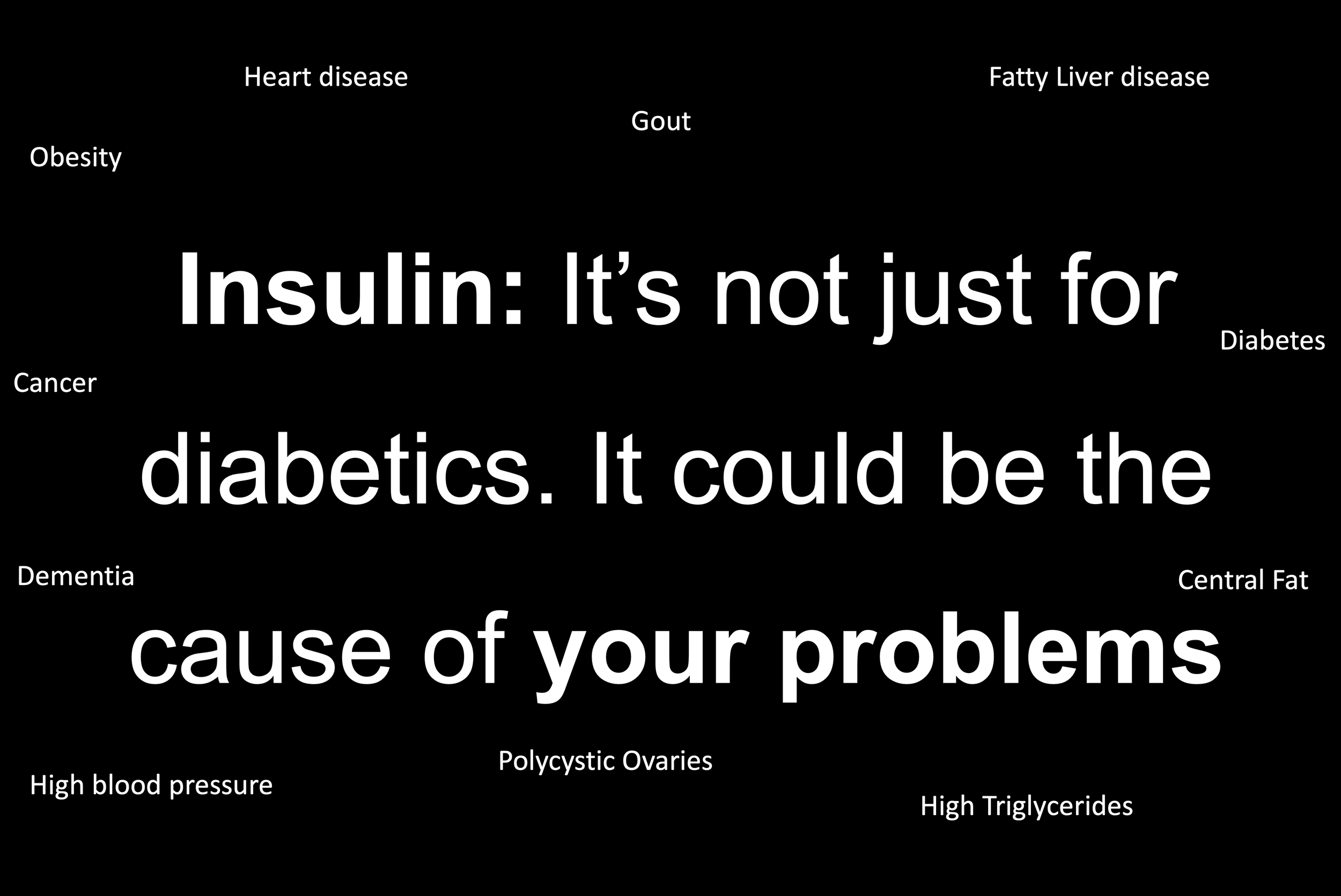A number of years ago, a colleague of mine lost a sizeable amount of weight off his impressive pot belly in just a few months, so I casually asked him how he did it, this was his answer…”It’s all about the insulin.” Honestly, I had no idea what he meant by this, fortunately for me, we were called to an emergency so I didn’t get a chance to ask what he meant thereby exposing my shocking ignorance regarding endocrinology and the mysteries that surround insulin and diabetes. I still feel somewhat embarrassed when I look back at this moment, but if you think I’m the only doctor who doesn’t know much insulin, think again! You’ll be saddened and shocked to hear that what we’ve learned at medical school and what we put into clinical practice are two very different things.
If you ask most doctors what the role of insulin is in the body, the standard answer will be to lower blood sugar. And that’s what I would’ve said as well. Yes, it does lower our blood sugar but that’s only one of its actions and not even the most important one! By far it’s most important function is to control what happens to the food we eat. Do we burn it off in energy production for our vital processes or do we store that food as fat? That’s right, insulin is one of the hormones, possibly the most important hormone that helps the body decide if we should BURN IT or STORE IT as fat. If you have LOW insulin levels you BURN IT. If you have HIGH insulin levels you STORE IT. If you have fat to lose it is almost impossible to BURN that stored fat for energy usage if you have too much insulin around. It's like the on/off switch for our metabolism and fat burning. High insulin: burning OFF. Low insulin: burning ON.
Insulin has many other actions in the body. It also controls other hormones we produce such as glucagon which tells the liver to make glucose. It is involved in the growth of cells which is why the lining of our blood vessels get thicker when it’s high and why there are receptors for insulin on lots of different types of cancers. It also helps control how much salt our kidneys hold onto thereby helping to control our blood pressure and this is just the start of it. My clever colleague was right... it truly is... “all about insulin.” Unfortunately, this vital piece of information didn’t receive the attention and respect it deserves! As a consequence of this ignorance - whether intentional or accidental - has led to a widespread increase in diabetes, obesity and their associated complications over the past 50 years. It's time to respect our insulin again.
So what controls how much insulin we have in our bodies? The answer is simple - it’s the type of foods and drinks we consume. Pure carbohydrates (table sugar, bread, pasta, potatoes, rice, confectionary, soft drinks etc) cause our pancreas - the organ where insulin is made and stored - to release a large amount of insulin when these foods enter our stomach and small intestine. When we eat foods containing protein (meat, fish, eggs,) we release a little insulin by comparison… much less than when we eat carbs. When we eat pure fat (butter, lard, tallow) it causes almost no release of insulin at all. But we usually don’t eat just carbs, protein and fats in isolation do we? Our foods are usually a combination of these 3 macros, as people refer to them and this is where it gets super interesting.
When we eat foods that contain both fats and carbs (a combination that doesn’t exist in nature) like donuts (sugar, flour, seed oil), pizza (flour, oils), chips (potato and seed oil), milk chocolate and ice-cream (sugar and fats) you get the picture…. the release of insulin is huge… often many times higher than just with pure carbs alone…and this is where the problems starts. This combination of fats and carbs drives us to eat more and more of these processed and ultra-processed foods because they are deliberately made to taste good and they are addictive (more on that later) as a result our insulin levels are always higher than they should be. The higher the sustained insulin levels are over time, the more fat you store especially around the organs in the belly, this is called visceral fat.
Whereas, when you combine protein with fat as found in nature (eggs, cheese, meats, fish) the effect on insulin release is minimal. This combination of nutrient dense foods and low insulin levels supports the bodies vital processes optimally without encouraging fat storage. This state of low insulin level allows your body to tap into your fat stores as an additional source of energy by keeping the BURN IT switch on.
So, to sum up, the hormone insulin is one of the most powerful determinants of what happens to the food we eat. In general, if it’s too high you store the food as fat and when its low you'll burn the fat. So what we eat matters because it determines whether we burn now or store for later. It really isn’t just about the amount of calories like we’ve been told, but it’s more about the type of calories that we consume that makes the difference.
